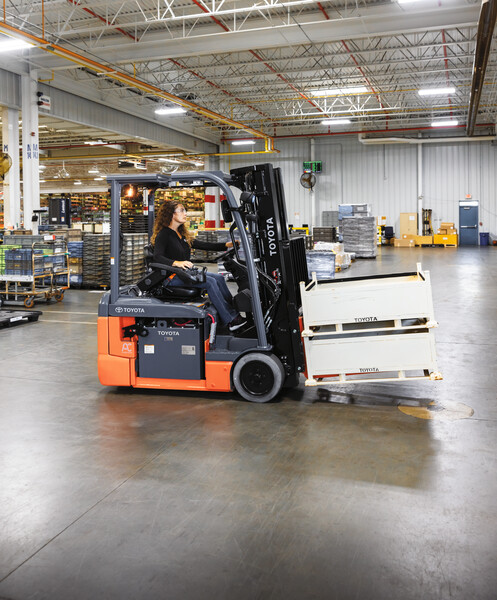In an era marked by increasing environmental consciousness, industries are seeking sustainable solutions across their operations. Electric forklifts have emerged as a promising alternative, offering numerous advantages over their traditional internal combustion engine counterparts. Not only do these vehicles enhance operational efficiency, but they also significantly contribute to environmental conservation. Here’s a closer look at how electric forklifts benefit the environment:
1. Zero Emissions
Unlike internal combustion engine forklifts that run on fossil fuels and emit harmful gases like carbon monoxide, nitrogen oxides, and particulate matter, electric forklifts operate solely on electricity. They produce zero tailpipe emissions, thus minimizing air pollution within enclosed spaces, warehouses, and industrial environments. This contributes to improved indoor air quality and reduces the carbon footprint of the workplace.
2. Energy Efficiency
Electric forklifts are more energy-efficient compared to their diesel or propane counterparts. Electric motors convert a higher percentage of input energy into usable work, leading to reduced energy wastage and lower operational costs. Furthermore, advancements in battery technologies have increased the lifespan and charging efficiency of electric forklift batteries, making them more sustainable and cost-effective in the long run.
3. Noise Reduction
Another environmental advantage of these forklifts is their quieter operation. Unlike noisy internal combustion engine forklifts, electric models operate with significantly reduced noise levels. This noise reduction not only contributes to a more pleasant work environment for employees but also minimizes noise pollution in surrounding communities.
4. Renewable Energy Integration
The shift toward electric forklifts aligns with the increasing adoption of renewable energy sources. Companies can power their electric forklifts using electricity generated from renewable sources like solar, wind, or hydroelectric power. This integration with clean energy sources further enhances the overall environmental sustainability of these forklifts, reducing reliance on non-renewable fossil fuels.
5. Reduced Maintenance and Lifecycle Impact
Electric motors generally require less maintenance than internal combustion engines. They have fewer moving parts, reducing the frequency of servicing and the generation of waste materials associated with maintenance. Additionally, the recyclability of batteries and the potential for repurposing old batteries for energy storage contribute to a more sustainable lifecycle for your forklifts.
Conclusion
The adoption of electric forklifts represents a significant step towards fostering environmentally responsible practices in industrial and warehouse operations. Their zero-emission operation, energy efficiency, noise reduction, compatibility with renewable energy sources, and reduced maintenance requirements collectively contribute to a greener and more sustainable future. As businesses prioritize eco-conscious solutions, embracing electric forklifts stands out as a crucial step towards reducing environmental impact while enhancing operational efficiency.
